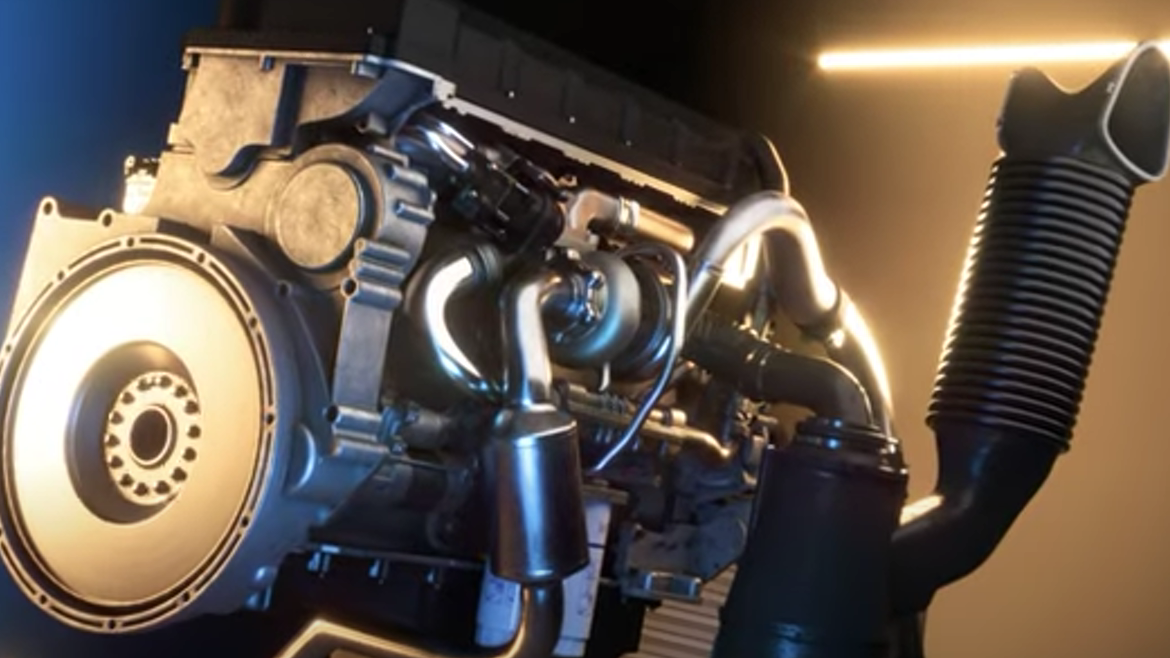Mar 1, 2023
Posted by Adam Kidson, Technology Manager, India and Middle East, Kailash Sawant, Associate Director, Product Management, Lubrizol Additives – India & Middle East, Sreehari Kumar, Senior Manager, Commercial Engine Oils (India & Middle East)
The automotive world is undergoing revolutionary change. In 2020, Indian legislators implemented BS-VI for commercial vehicles. This implementation saw Original Equipment Manufacturers (OEMs), making significant hardware changes because of the BS-VI mandate to cut vehicle emissions of nitrogen oxides, particulate matters, and hydrocarbon. OEMs are required to add aftertreatment devices, such as the Diesel Particulate Filters (DPFs) to achieve these cuts. With this comes increased cost of ownership for the fleet owners.
Compressed Natural Gas (CNG) is an alternative to petrol or diesel engines. CNG not only serves environmental factors, but also reduces the cost of ownership for fleet owners. The CNG transportation market in India is growing.
In this Lubrizol360 video, we discuss more.
For more information, please contact your Lubrizol representative.
Video Transcript
Kailash Sawant: The automotive world is undergoing a revolutionary change. In 2020, the commercial vehicle brought in the BS-VI change. This implementation saw OEMs making a lot of changes because of the mandate of production in Nitrogen Oxides, particulate matters, and hydrocarbon.
OEMs looked at the aftertreatment devices, the DPF (Diesel Particulate Filter), which was a mandatory change. With that came the cost of ownership because that increased the cost to the fleet owners. At the same time, the government was moving towards the gas-based economy.
Compressed Natural Gas (CNG) is a better alternative than a petrol or a diesel engine. Compressed natural gas not only serves the environment but also reduces the cost of ownership for the fleet owners. CNG transportation market is growing. It is growing in the buses, coaches, and light and medium vehicles. The focus from the government is on the infrastructure. And we see a threefold increase in the CNG infrastructure by 2025.
Adam Kidson: Although the basic operating principle between a diesel and the CNG engine is similar, there are some significant differences which affect the performance requirements of the lubricant.
As with all internal combustion engines, the air to fuel ratio is a hugely important factor and previous generation CNG engines often used a lean burn combustion strategy. In the latest breed of BS-VI compliant engines, the fuel is burned, targeting a stoichiometric ratio which allows three-way catalysts to be used and harmful emissions to be significantly reduced.
However, stoichiometric operation also results in higher temperatures in comparison to diesel or lean burn CNG engines. This means the lubricant is subjected to high rates of degradation through oxidation and nitration, which then leads to thickening or sludge formation.
CNG engines in general, produce higher exhaust temperatures than diesel engines. The latest generation of engines use advanced computer-controlled fuel injection systems and three-way catalysts, in order to meet the stringent emissions requirements of Bharat Stage VI.
The stoichiometric combustion strategies required for this, increase temperatures even further Since natural gas is a dry fuel, it lacks the lubricating properties of liquid fuels such as diesel. This means that some key components, such as the valves, are prone to higher wear rates or even premature failure.
Ensuring an optimal level of ash in the lubricant helps to mitigate those effects. However, too much ash can cause deposits to form in the high temperature conditions of the combustion chamber and also lead to pre ignition and engine damage.
When we also consider the lower TBN requirements as a result of the lower levels of sulfur in natural gas, we start to see that a CNG engine oil looks quite different to that of a typical diesel or gasoline engine oil.
Formulating for CNG engines is a delicate balance to ensure that the oil provides robust hardware protection but does not interfere with the operation of the engine or emissions. And in addition, it has to have strong oxidation resistance to last a typical drain interval or beyond.
Sreehari Kumar: Therefore, for a CNG engine, it is very important that we have a dedicated gas engine oil chemistry. It provides the necessary benefits like good resistance to nitration and oxidation, more anti-wear performance and at the same time maintaining the optimized ash level.
Also, considering CNG engines operate at a very high temperature, it should provide the necessary detergency as well. This roughly translates into end user benefits when it comes down to lower total cost of operation.
When it comes to India, our CNG engine platforms are different from its global counterparts, operating cycles, the duty cycles, the servicing infrastructure, the servicing intervals are also completely different. Therefore, it becomes pertinent that we have something which is developed for India and locally tested, robustly tested.
In our view, natural gas is a growth sector for the current government of India. There will be more CNG engines on the road. That means that this market would need a dedicated gas engine oil chemistry.








